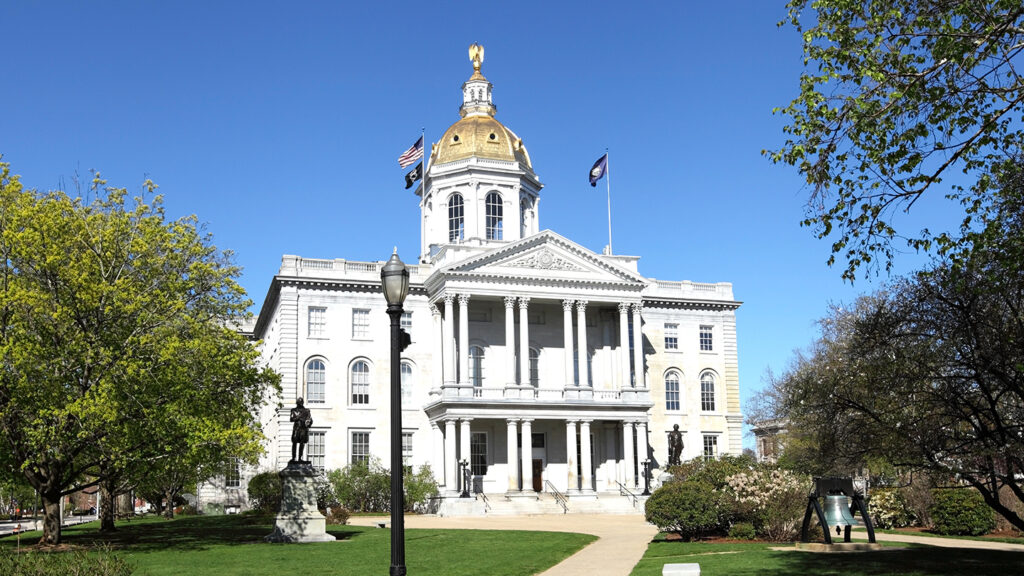
Senior living advocates say passage of a nurse staffing agency bill in New Hampshire will prevent providers from being forced to pay ransom in a “sort of hostage situation” for temporary nurses.
Gov. Chris Sununu (R) signed SB 149 into law on Aug. 8, supporting consumers and taxpayer accountability by establishing a licensing and application process for nurse staffing agencies, according to industry experts.
Beginning in October, agencies will be prohibited from double booking a nurse or licensed nursing assistant to encourage facility bidding wars, using infectious diseases — such as COVID-19 or the flu — as an excuse to up-charge facilities, recruiting from within placement facilities, or placing nurses or LNAs in facilities if their professional license was suspended.
The bill also establishes a licensing and application process for nurse agencies, requiring agencies to register with the state Office of Professional Licensure and Certification by Jan. 1, 2024.
One thing the new law won’t do — much to the chagrin of the long-term care industry — is require staffing agencies to publicize how much they charge healthcare facilities or pay their workers.
Calling the bill a “step in the right direction,” LeadingAge Maine & New Hampshire Executive Director Lisa Henderson told McKnight’s Senior Living that it was like the Wild West, especially during the COVID-19 pandemic.
“Out-of-state staffing agencies descended upon New Hampshire, seeing a lucrative business opportunity in the form of desperate providers,” Henderson said. “Now the state will step in to ensure the legitimacy of these agencies, lifting some of the burden off providers. That’s helpful, as is prohibiting unfair practices, such as double-booking and poaching of staff nurses and LNAs.”
The registration piece is important, New Hampshire Health Care Association President and CEO Brendan Williams agreed, because it “reveals how many of these actors are doing business in your state and how many of those are based out of state.” The NHHCA is the state affiliate of the American Health Care Association / National Center for Assisted Living.
“Nothing worse than, say, plugging a Friday evening shift with an agency workers and finding out Friday morning, in a sort of hostage situation, that this same workers has been double booked, and the only way to have her show is to pay a ransom,” Williams told McKnight’s Senior Living, adding that past practices involving double booking and on-site recruitment are now illegal.
A website promoting the bill said that healthcare facilities often turned to staffing agencies due to a competitive job market and a lack of permanent housing for workers.
Both Henderson and Williams said they were disappointed that language addressing transparency around pricing was stripped from the final bill.
“Providers are held hostage because they have no choice in this low unemployment environment but to backfill staffing shortages with temporary placements,” Henderson said, adding that the state deserves greater accountability of public dollars used to fund long-term care. “Without it, costs will continue to rise, while consumer access erodes because providers will continue to shutter wings or close admissions altogether, unable to sustain the cost of contracting with nurse agencies.”
Staffing agency practices targeted by state, national lawmakers
New Hampshire joins other states that have enacted laws addressing price gouging and predatory practices by temporary staffing agencies, including Indiana, Iowa, Louisiana, Oregon, Pennsylvania, Massachusetts, Minnesota, Illinois and Tennessee.
On a national level, in 2021, LeadingAge and AHCA / NCAL formally asked for a Federal Trade Commission investigation into agency practices. In early 2022, the associations joined 10 other organizations in asking the White House COVID-19 Response Team for “assistance with an anticompetitive practice with certain nurse-staffing agencies.”
Almost 200 House lawmakers, led by Reps. Peter Welch (D-VT) and Morgan Griffith (R-VA), also sent a letter to the White House COVID-19 Response Team last year calling on federal agencies with competition and consumer protection authority to investigate staffing firms’ conduct and practices.
Congress also increasingly has looked into those issues and held hearings to consider HR 675, the COVID-19 Price Gouging Prevention Act, introduced in 2021. The bill would make it unlawful to sell goods or services during a public health emergency at a rate that is “unconscionably excessive” and constitutes price gouging.


